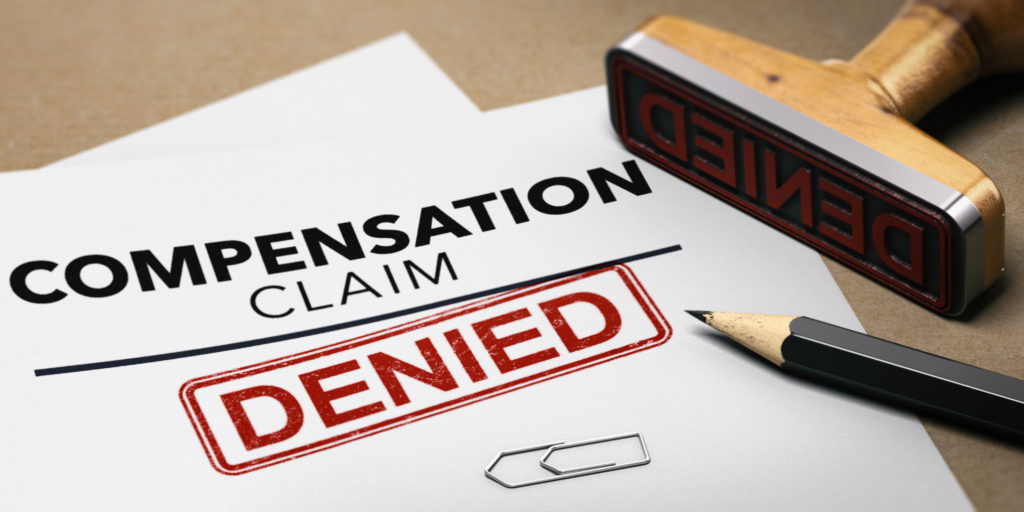Navigating the Appeals Process: How to Challenge a Denied Workers’ Compensation Claim in Florida
Dealing with an injury at the workplace is a heavy burden; sometimes the situation can seem untenable when your workers’ compensation claim is denied. However, not all hope is lost. If you or a loved one are dealing with a denied workers’ compensation claim, it is paramount to understand your rights and the appeal process available to you. In Florida, the appeals process is in place to review and potentially reverse denied claims so that you can restore this critical financial lifeline during your recovery.
This comprehensive guide will walk you through some of what you need to know to challenge a workers’ compensation claim denial, should you find yourself in this scenario.
Step 1: Determine the Reason for Denial
Understanding the basis for denial is the first step, as it will shape how you proceed in appealing. Common reasons for claims to be denied include:
- Failure to Notify Employer: Strict statutes in Florida dictate that employees must report injuries within 30 days with very few exceptions.
- Lack of Medical Evidence: A solid claim should be substantiated by strong medical proof. Instances where the severity or causation of the injury is in question can lead to rejection.
- Dispute Over the Claim: Sometimes the employer or the insurance company may contest the claim. This can be due to various factors, such as the conditions surrounding the injury or the worker’s employment status.
The language of denial can sometimes feel like a deliberate barrier designed to dissuade further action, but it’s important to dissect the denial letter and discern the specific reason for refusal. Consulting with an experienced workers’ compensation attorney can be extremely beneficial in understanding the denial and determining how to move forward.
Step 2: File a Petition for Benefits
Upon receiving the denial, your next step should be to file a Petition for Benefits with the Office of Judges of Compensation Claims (OJCC). This legal document will serve as the framework for your formal challenge and the focal point of your claim as it moves through the process.
The petition should be submitted promptly and filled out accurately to avoid unnecessary delays. Time is of the essence; the statutes of limitations for filing a petition after a denial are relatively short. Your petition should address the specific reasons for the denial and provide a comprehensive account of the incident and your sustained injuries.
Step 3: Choose the Right Path for Your Case: Mediation or Formal Hearing
After a petition is filed, your denied workers’ comp claim will enter the litigation process. The path it takes from there is not set in stone; in Florida, you will have the option to pursue either mediation or a formal hearing to resolve the dispute. Here’s how they differ:
- Mediation: This process happens outside of court and involves a neutral mediator – often a legal representative like an attorney – who will work with both parties to reach a mutually agreed-upon resolution. Mediation is often favored as it is less adversarial and can lead to a quicker, less expensive conclusion.
- Formal Hearing: If mediation is unsuccessful or deemed inappropriate, a formal hearing before a judge will be scheduled. This more structured approach involves presenting evidence, witness testimony, and expert opinions to make your case.
Deciding between mediation and a formal hearing is a strategic choice; getting legal counsel can help you determine which path is best.
Step 4: Appeal to the First District Court of Appeal, if Needed
If your claim is unsuccessful, you have the right to request review from the First District Court of Appeal. This is a significant step that requires a thorough understanding of appellate law and procedures.
The appellate process is distinct from the initial challenge and centers on legal errors or misinterpretations that may have influenced the outcome of your workers’ compensation case. A strategic approach to your appeal, including crafting compelling legal arguments and citing relevant case law, is vital in achieving a successful reversal or modification of the denial.
The Power of Professional Legal Advocacy
While it’s possible to take on the appeals process alone, partnering with a board-certified workers’ comp attorney like Lance Avera is invaluable in achieving the most positive outcome. In fact, less than half of 1% of all Florida lawyers have obtained board certification in workers’ compensation law, which means consulting with Avera & Smith gives you a significant advantage.
Attorneys who specialize in workers’ compensation law are well-versed in the latest regulations, case law, and precedents that can impact the success of your claim. Their role includes:
- Evaluation of your case: A qualified attorney can provide an honest assessment of your situation, including the likelihood of a successful appeal.
- Preparing for litigation: Lawyers will assist in gathering vital evidence, medical records, and testimonies to build a robust case on your behalf.
- Representation: Your attorney will serve as your legal representative at every stage of the appeals process, from OJCC proceedings to the appellate court, ensuring that your rights are fiercely protected.
If you’re struggling with a denied workers’ comp claim, remember that you’re not alone. Resources, advocates, and a well-defined legal process are in place to assist and protect you. By remaining proactive, and informed, and enlisting the right legal expertise, you can stand up for your entitlements and shift the balance of power in your favor. Reach out today to schedule your free consultation with the trial-tested attorneys at Avera & Smith.
